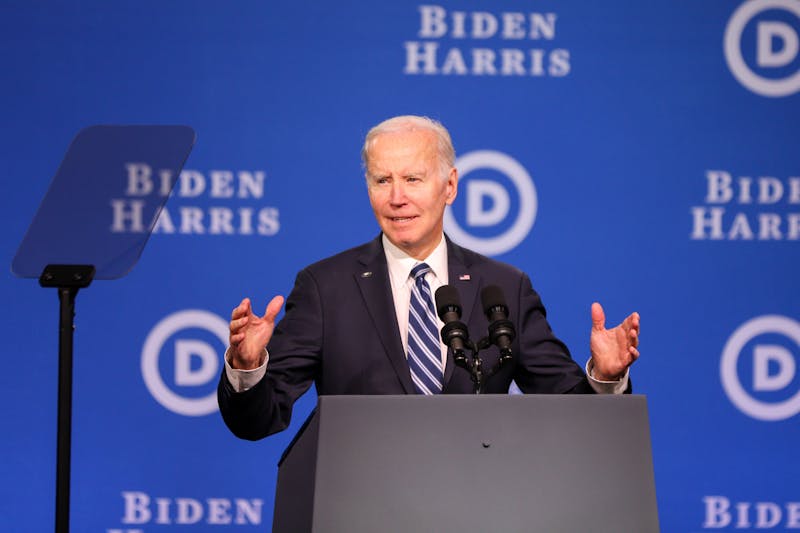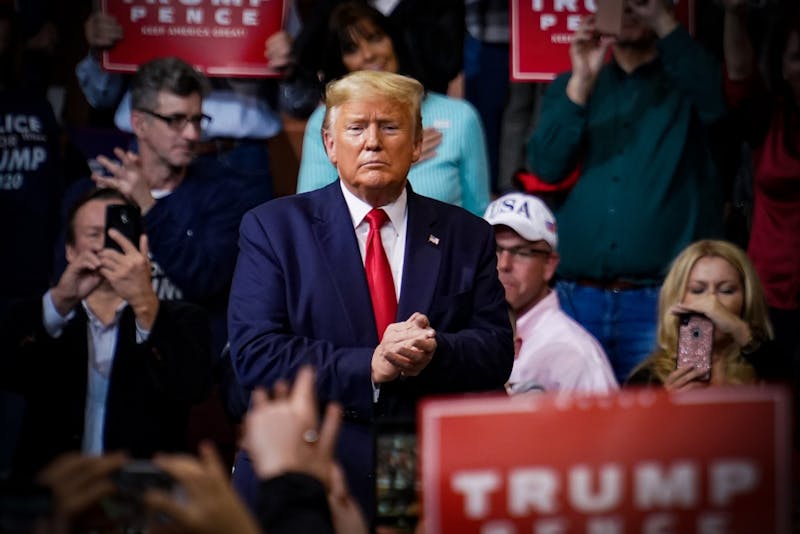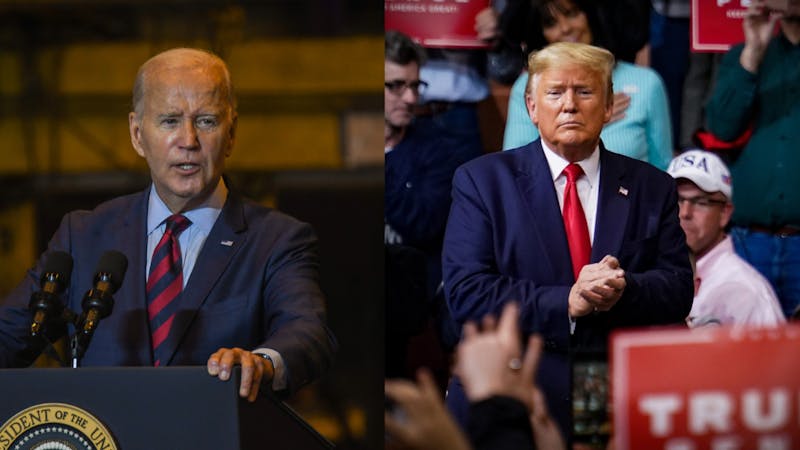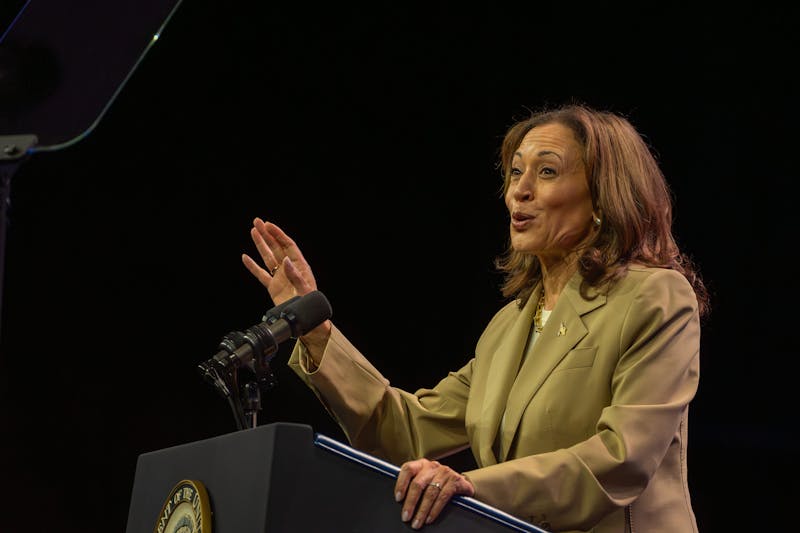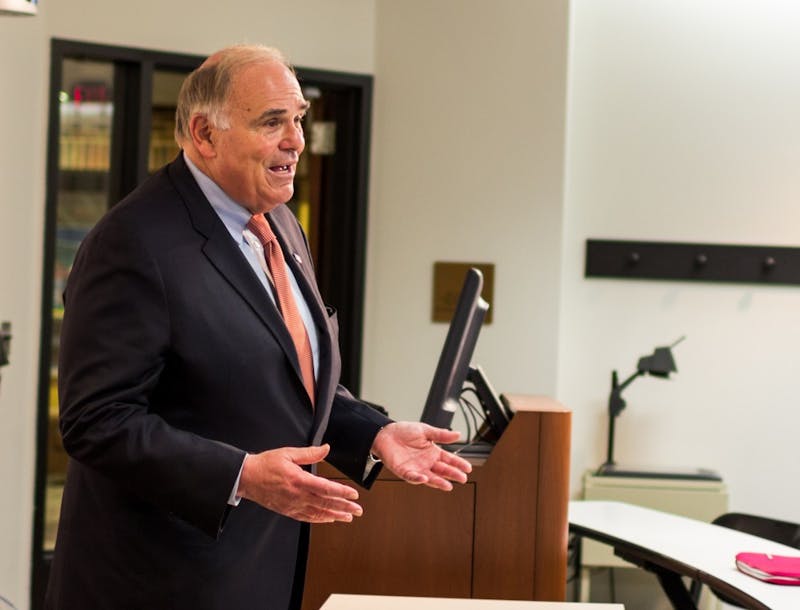
Columnist Ananya Shah comments on President Biden’s withdrawal from the 2024 presidential election.
Credit: Jesse ZhangAmerican politics has rarely been mundane, but the past two weeks may have broken a record for textbook-worthy events. It felt like a long time coming when President Joe Biden announced his withdrawal from the 2024 presidential election. Amid suffocating pressure from the Democratic Party, Biden wrote, “And while it has been my intention to seek reelection, I believe it is in the best interest of my party and the country for me to stand down and to focus solely on fulfilling my duties as President for the remainder of my term.”
While many are applauding Biden on his selfless decision, I think it’s dangerous to coin this decision as anything but a forced hand. For the entirety of his 2024 campaign, Biden has been vehemently denying all accusations of cognitive decline from reporters, skeptical Democrats, and, of course, Republicans with pitchforks. But with his embarrassing performance at the debate, gross misstatements on numerous occasions — including mistakenly calling Ukrainian President Zelenskyy “President Putin,” and countless shaky interviews, questions about Biden’s mental capacity became harder to ignore.
His televised appearances have received an overwhelmingly negative response, but his current mental capacity isn’t something that’s declined overnight. If the Biden administration has been willing to prioritize staying in power over having an energetic executive for nearly four years, why suddenly risk plunging the Democratic Party into chaos? Why now?
The answer is simple: Biden’s cash flow has been drying up. Several loyal Democrat donors have been unconvinced with Biden’s performance, including Damon Lindelof — a prominent Emmy-winning American screenwriter — who has called on other donors to withhold funding to engender a change on the ballot. Considering there’s only a mere three weeks left until the Democratic National Convention and four months left until the election, I find it very hard to believe that Biden would have dropped out of the race at this stage without the threat of dwindling funds.
This economic pseudo-sanction on Biden’s campaign has brought attention to one of the principal determinants of elections: donors. Donors’ varying levels of generosity completely dictates how much a candidate can spend on advertising, staff, and rallies. So, understandably, the candidate that spends the most money usually wins the election.
The recent surge in support and donations certainly shows how much more confident Democrats are in Vice President Kamala Harris over Biden. Following the debate, Biden was hard-pressed to find a donor willing to write a check for $100,000. And yet, in a record-breaking day, Harris and the Democratic Party raised roughly $250 million in donations and commitments when Biden announced his decision to step back. Over half of this large sum came from donors who were stalled for the past month due to worries about Biden’s competence. The thought that Biden was going to continue his campaign despite blatant fissures within the Democratic Party due to his performance is concerning.
Regardless, the Democratic Party, no longer burdened by the liability of Biden’s age, is invigorated with a fighting chance for the election due to the doubling down on donations. Although highly unlikely, Republicans would fare well by taking a page out of the Democratic Party’s book. Former Republican presidential candidate Nikki Haley said, “The first party to retire its 80-year-old candidate is going to be the party that wins this election.” I, along with 79% of the American people, agree with Haley; no one wants an 80-year-old in the White House. I wish for a future where more politicians put the country’s best interests ahead of their own selfish ambition without having to be prompted.
ANANYA SHAH is a rising College first year studying philosophy, politics, and economics from Bonaire, Ga. Her email is aoshah@sas.upenn.edu.
The Daily Pennsylvanian is an independent, student-run newspaper. Please consider making a donation to support the coverage that shapes the University. Your generosity ensures a future of strong journalism at Penn.
Donate







